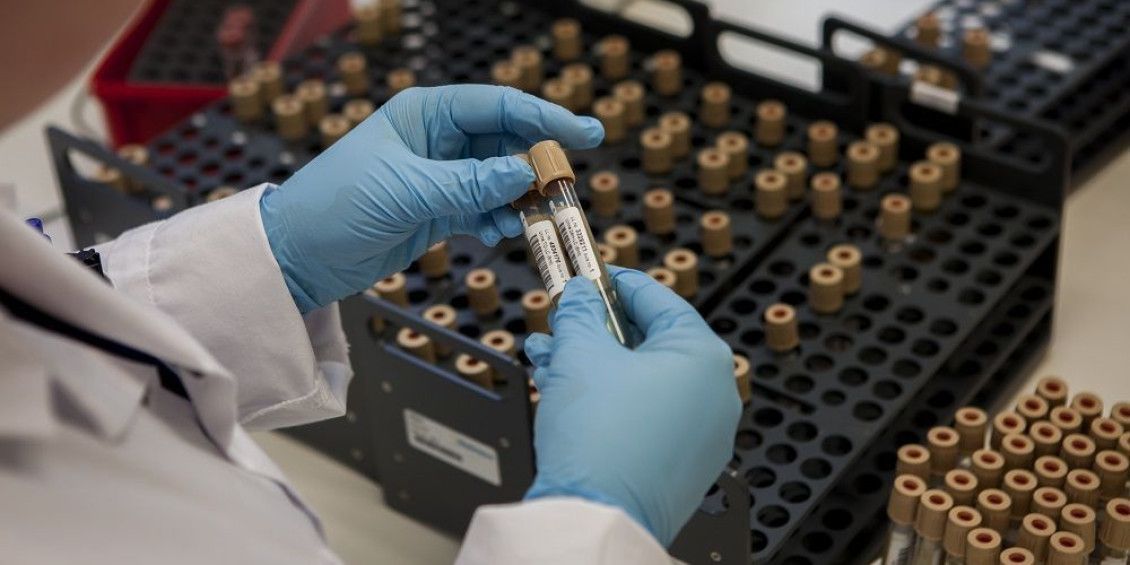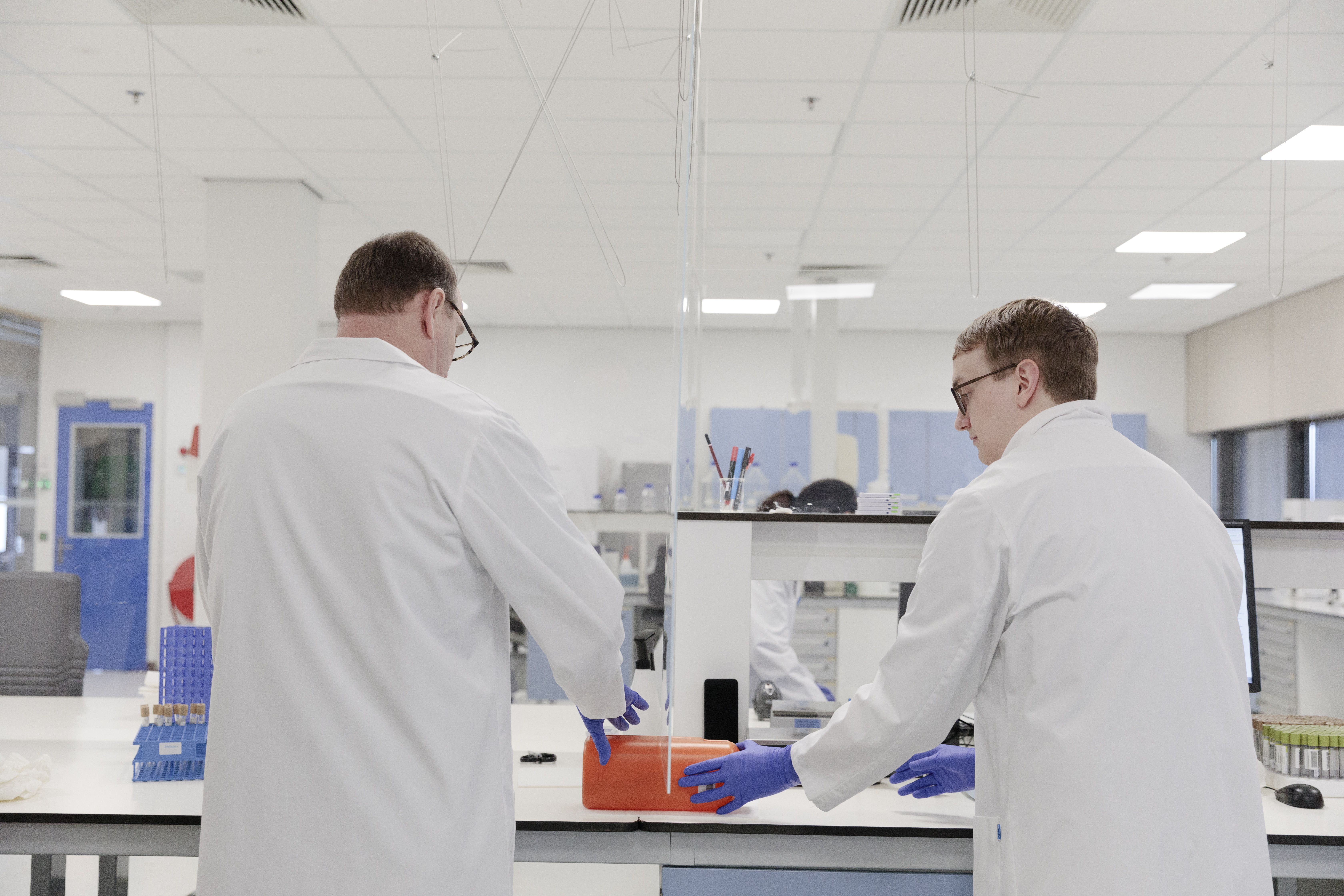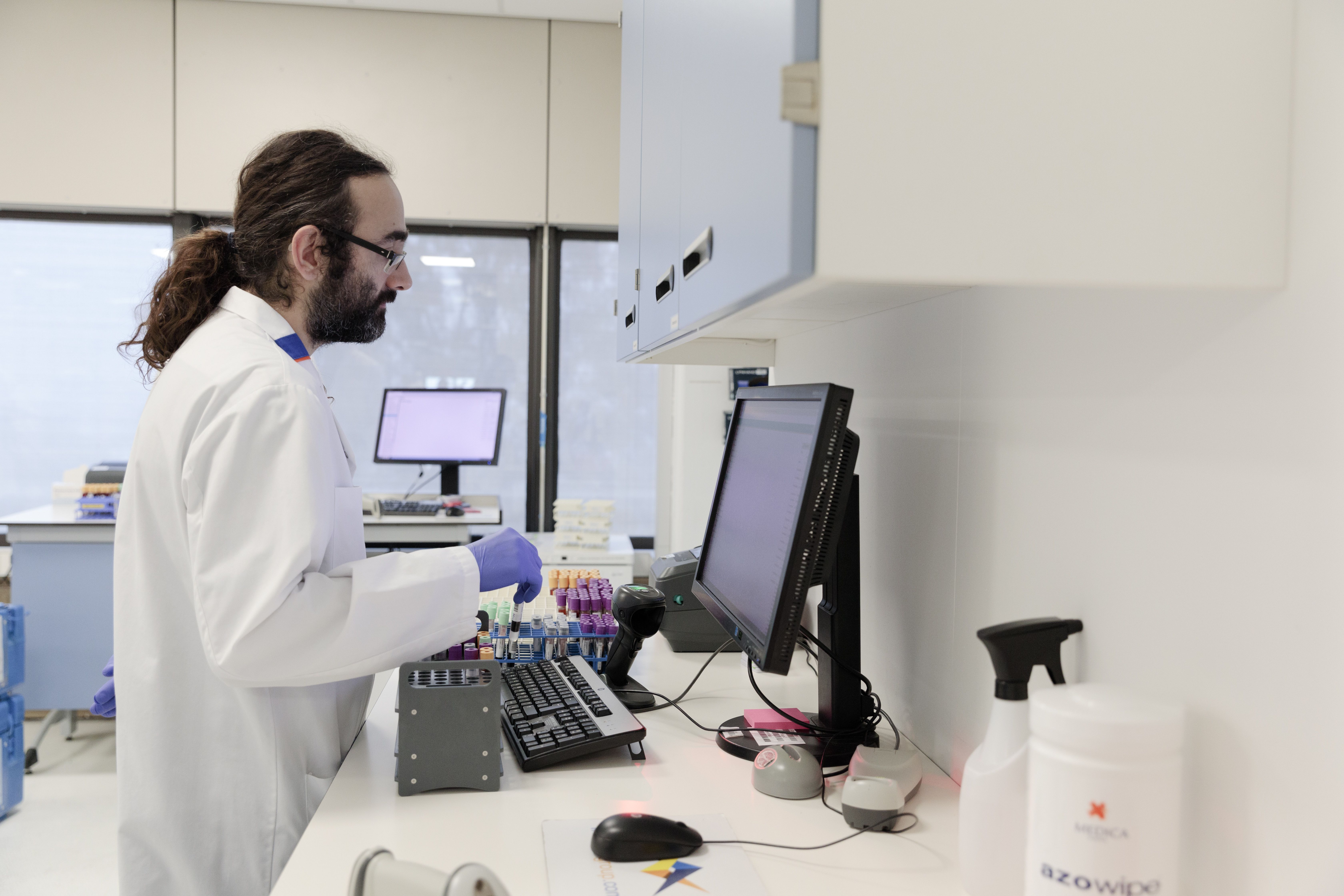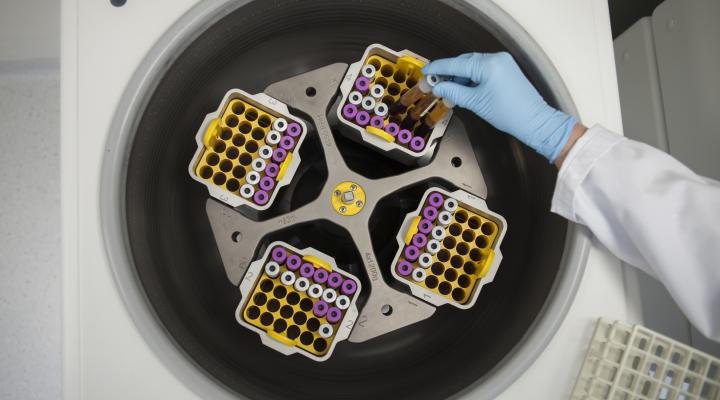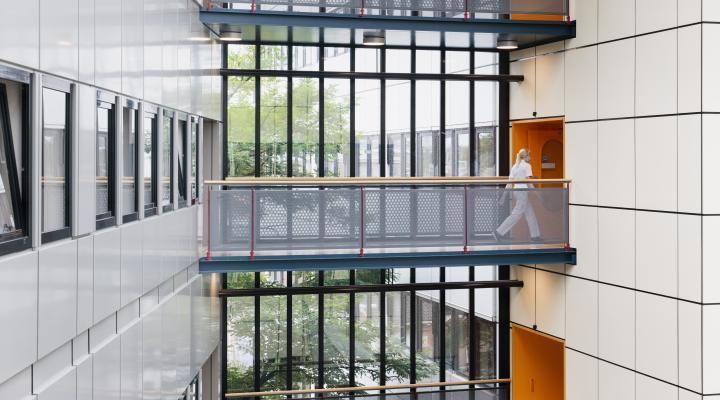
Biosamples
Lifelines provides access to a large range of biological samples, including –80 ˚C frozen urine, serum, plasma, buffycoats, and DNA samples. All analytical data from collection to storage are calculated and stored with every sample. For example: primary collection tube, centrifugation settings, secondary containers, and processing time. When samples are requested, these metadata are provided in form of SPREC coding. In addition to safe storage of our biosamples, the Lifelines laboratory also offers biosample collection, processing, and DNA extraction services with appropriate quality control procedures.
For additional biosample collections, Lifelines can assist in the development of sophisticated collection kits for on-site or even remote biosample collection. We can also process the collected biosamples and facilitate analysis and data collection of the biosamples in our automated laboratory systems. The labs that are used for the analysis of the biosamples follow the same high standards as we demand for our own processes and biosamples.
Blood samples
The available Lifelines blood samples have been collected longitudinally across various visits, roughly five years apart. The blood samples have been collected in various bloodtubes, including K2 EDTA, septum seperated and clot activated tubes. From the EDTA-tubes, both plasma and buffycoats were collected and stored.
Different blood tubes, such as lithiumheparine, sodiumfluoride and EDTA, have been used for analyses of chemical and haematological parameters, for example LDL/HDL cholesterol, HbA1c and triglycerides. These data can be found in our Lifelines data catalogue.
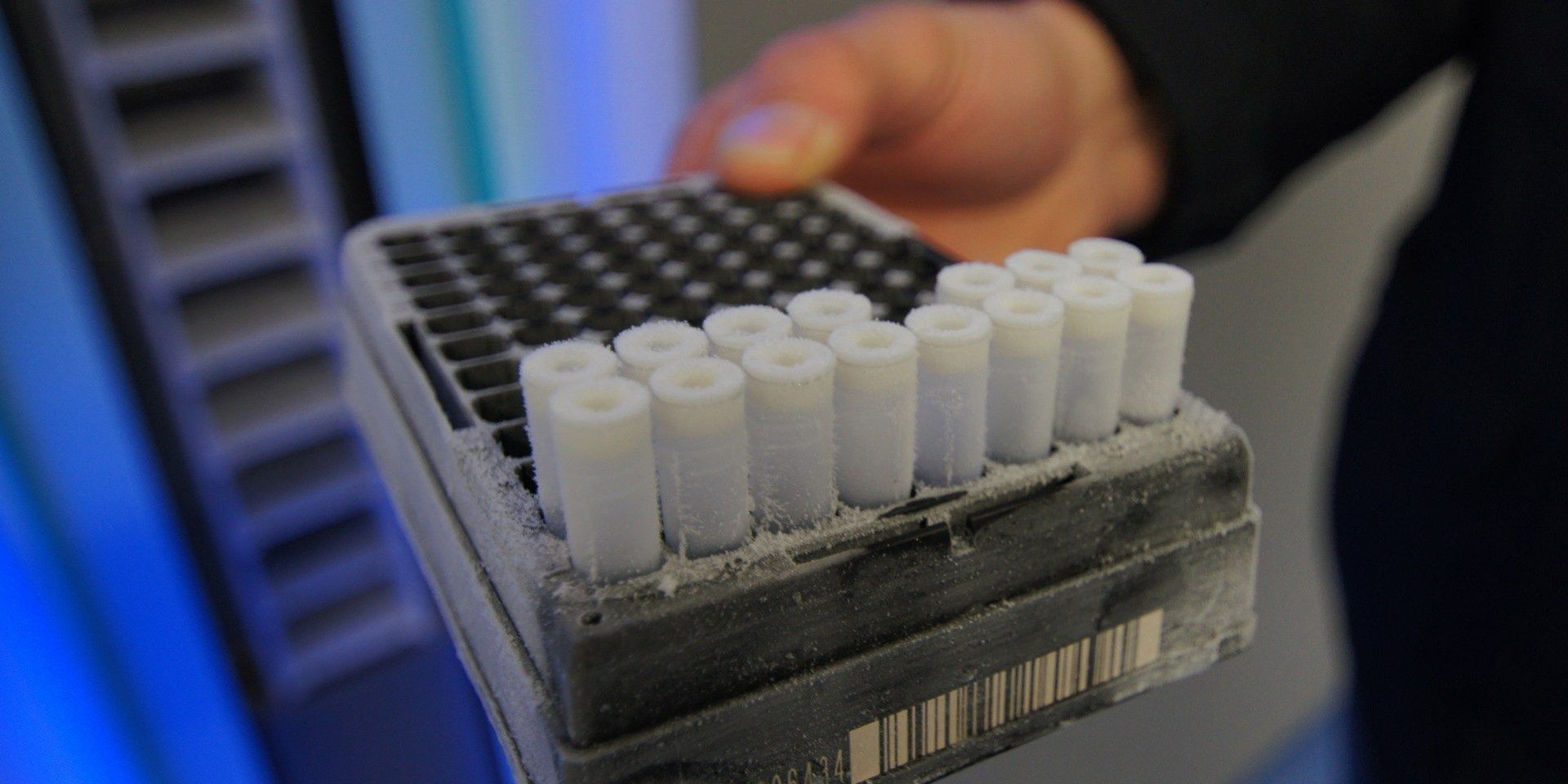
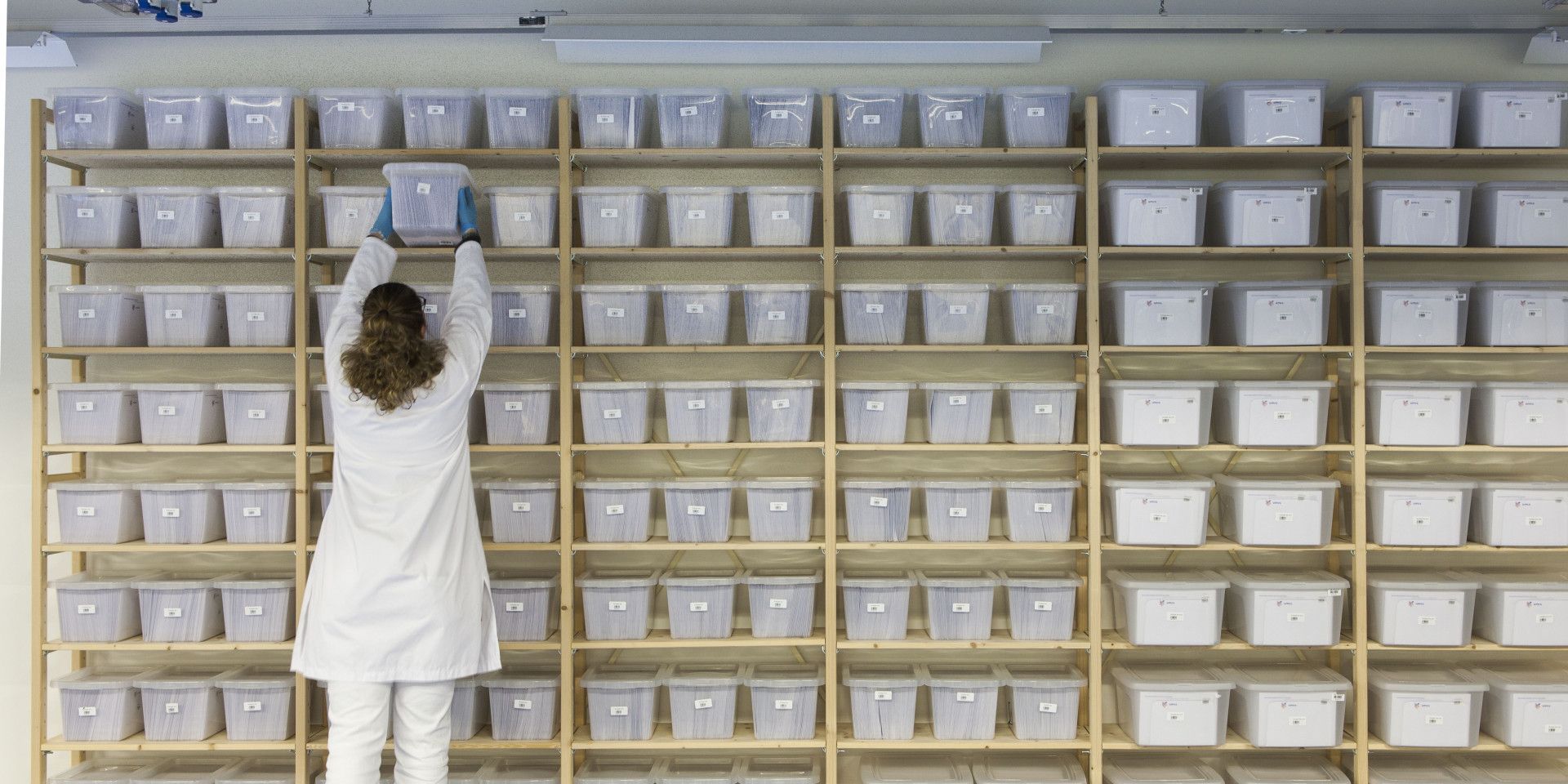
Hair samples
During the second assessment, Lifelines collected hair samples from around 59,000 participants. Hairs were not clipped, but collected from the root down. All hair samples have a length gauge along with the sample and are stored at room temperature.
Urine samples
Before the location visit where blood is drawn, urine is collected by Lifelines participants. Adults collect urine for 24 hours and also early morning, whereas participants under the age of 18 collect overnight urine. The frozen urine samples can be accessed to perform your research.
Additionally, part of the urine samples is analysed in the laboratory center of the UMCG immediately, resulting in values like albumin and creatin. These data can be found in our Lifelines data catalogue.
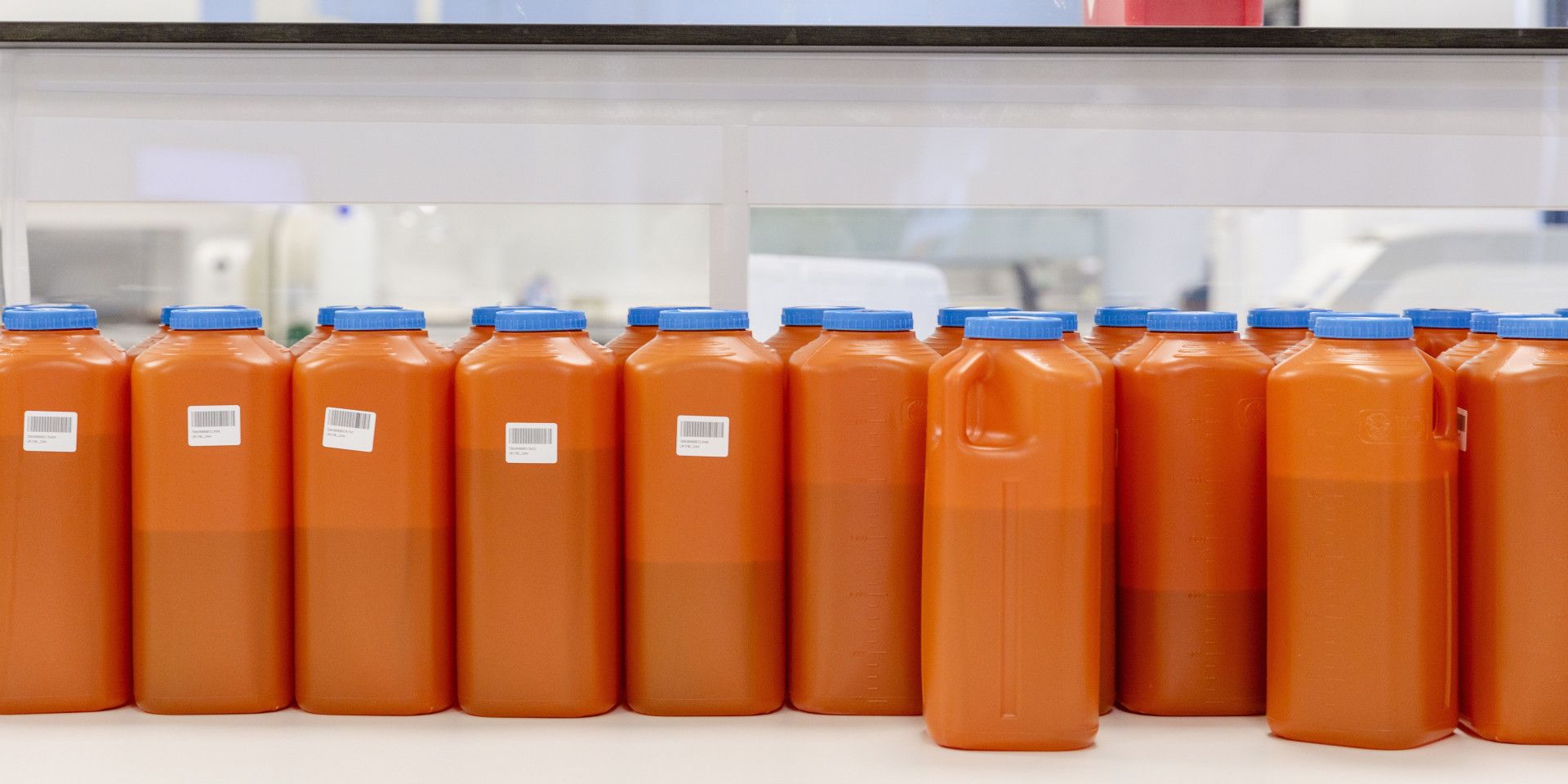
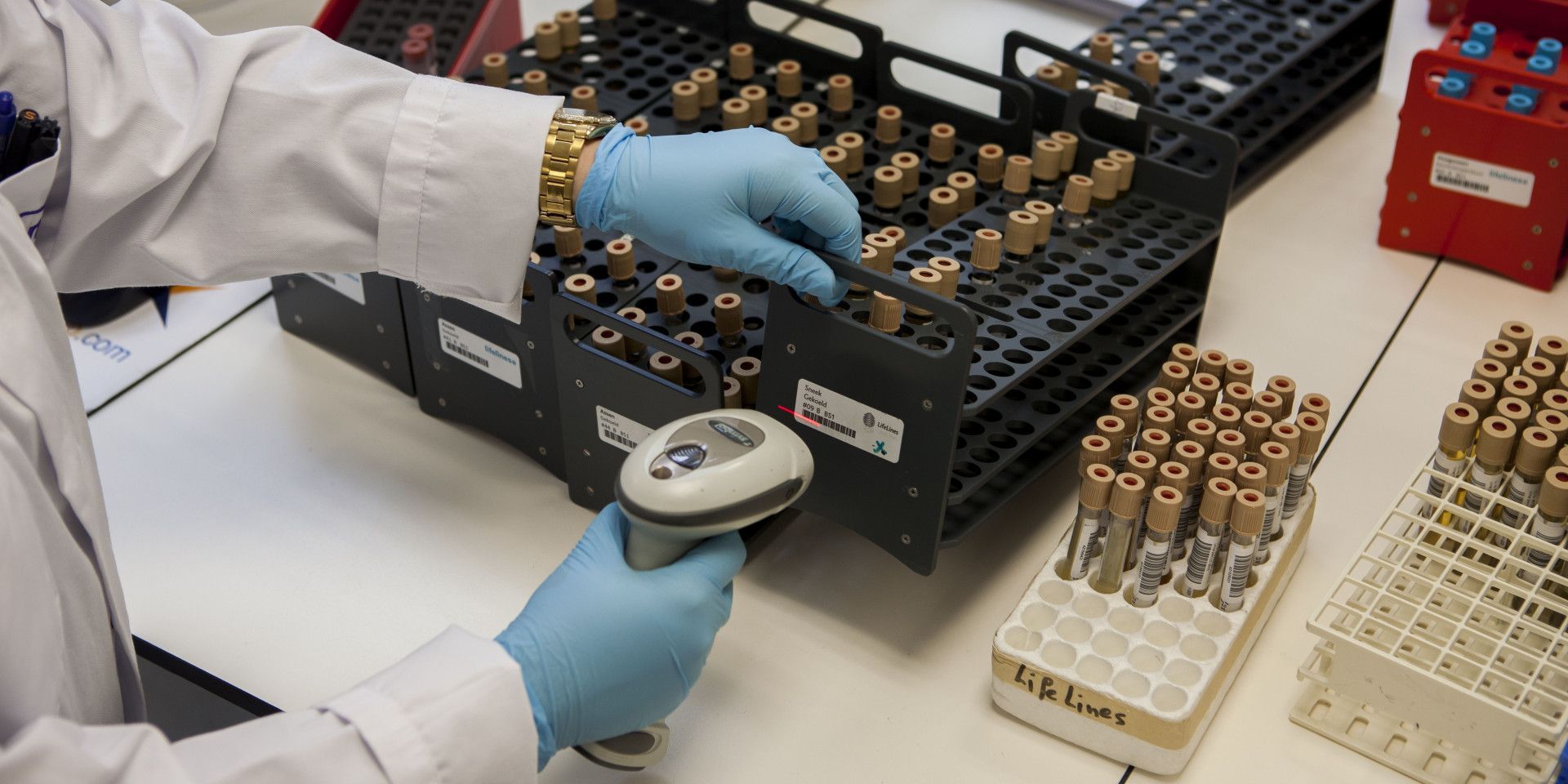
DNA samples
DNA has been extracted from a plasma EDTA tube with the Qiagen Ultrapure robot and later on with the Chemagic from buffycoat. Data on the validation and comparisation of both methods can be requested. If DNA samples are requested, concentrations 260/280 and 260/230 ratios will be added to the sample release file.
Whole blood samples
From a subsect of 30,000 participants, Lifelines collected whole blood samples. All samples were processed with a standard protocol, and are stored in liquid nitrogen at a temperature of around -185 ˚C. Vitality studies have been performed, and therefore, quality can be guaranteed by Lifelines.
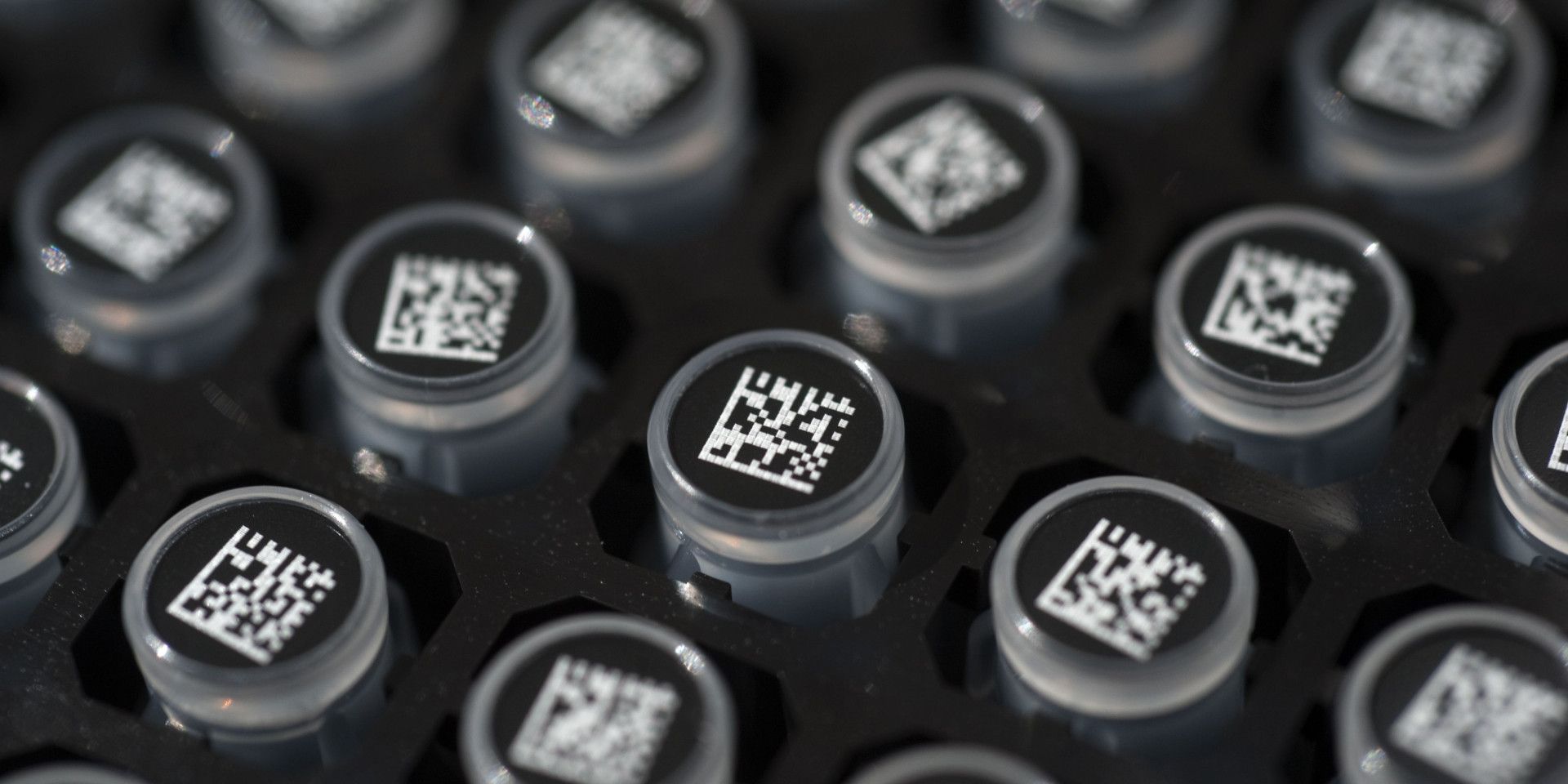
Examples of biosample projects
How does it work?
The Lifelines Research Office is happy to assist you in requesting the right biosamples and the smooth execution of the issuing process. Both a project manager and lab manager will be involved to ensure a prompt delivery of the requested samples. Lifelines has experience to deliver the needed biosamples worldwide and, if needed, to multiple sites. Please keep in mind that sample release for plasma, urine, and serum takes 1-2 months and for DNA 2-4 months once all documents have been arranged.
Ready to start your project?
